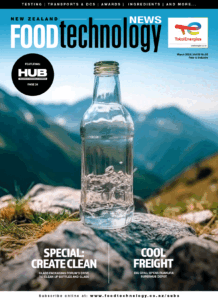
When it comes to sustainability in the food and grocery sector emphasis is often put on packaging, but there is another, even more impactful area – synthetic refrigerant gases.
Sometimes called as F-gases, they are among the most potent greenhouses gases known to man –thousands of times more so than carbon dioxide.
They’re found throughout the supply chain; from farms to huge cool stores, the air-conditioned trucks and containers transporting goods, through to the smallest corner stores and largest supermarkets. Leakage of these gases due to poor maintenance is significant contributor to climate change
Globally, effective management of synthetic refrigerants is seen as one of the most impactful ways to tackle climate change. And New Zealand has a part to play.
In 2020 these gases were declared a ‘priority product’ by the New Zealand Government, with work now under way to establish an all-of-industry, regulated product stewardship scheme.
The Trust for the Destruction of Synthetic Refrigerants is working towards becoming the product stewardship organisation for a government-accredited scheme. From 2024, the product stewardship programme known as Cool-Safe (previously ‘Recovery’) expects the recovery and disposal of synthetic refrigerants will be controlled, with the government-accredited, regulated scheme in place.
Currently Cool-Safe operates the country’s only voluntary scheme for synthetic refrigerants. It works with industry to collect and properly destroy the gases, as well as help ensure installation, maintenance and decommissioning follows industry best practice to avoid leaks.
On October 1 this year Cool-Safe launched a buy-back programme for refrigerants and is developing a growing network of collection points. It’s also in the process of building a multi-million-dollar, state-of-art destruction facility in the Bay of Plenty, so the gases can be dealt with onshore.
I encourage you to check out the Cool-Safe website so you can learn more about what regulated stewardship might mean for your business, and how to deal with these gases so they don’t become part of the climate crisis.
Natalie Martin is the materials innovation manager at 3R Group in Hawke’s Bay. She has a background in food technology and over 10 years’ experience in new product development for FMCG and still supports the industry as a consultant. At 3R, Natalie works in new product development for various waste streams, including packaging.
The information and opinions within this column are not necessarily the views or opinions of Hot Source, NZ Food Technology, or the parent company, Hayley Media.






























































































